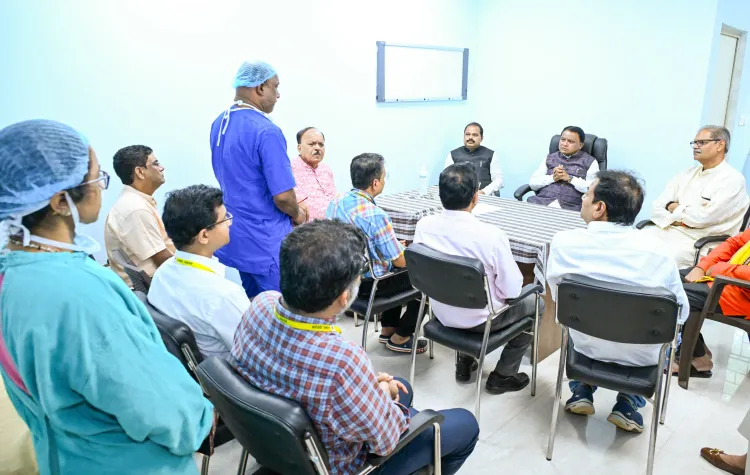What Actions is the Odisha Government Taking on the Balasore Incident?

Synopsis
Key Takeaways
- Urgent government action following a tragic incident.
- Mandatory reporting on Internal Complaints Committees (ICCs).
- Institutions required to adhere to the Sexual Harassment Act.
- Accountability through public displays of ICC member information.
- Workshops on sexual harassment to be organized for awareness.
Bhubaneswar, July 14 (NationPress) In light of the public fury following the tragic self-immolation of a student from FM Autonomous College in Balasore, the Odisha Higher Education Department has promptly issued an important directive. This directive calls upon all public and private universities, as well as government, aided, and unaided degree colleges within the state, to provide reports on the status of the Internal Complaints Committee (ICC) as mandated by the Sexual Harassment of Women at Workplace Act, 2013.
Institutions across the state are required to submit these reports within 24 hours. The Department's order references previous communications regarding the establishment of these internal committees in all colleges and universities.
The directive states, “Submit compliance of the instructions on IC (Internal Committee) within 24 hours in strict accordance with Section 4 of the mentioned Act, ensuring adequate representation of female members and external representatives. Additionally, adhere to the UGC (Prevention, Prohibition and Redressal of Sexual Harassment of Women Employees and Students in Higher Educational Institutions) Regulations, 2015.”
Moreover, educational institutions have been instructed to prominently display the names and contact information of all ICC members for public awareness.
Institutions are also tasked with uploading comprehensive details of the members to the Higher Education Information Management System (HIMS) portal.
Furthermore, higher educational institutions must promptly arrange workshops on the Sexual Harassment of Women at Workplace Act, 2013 to sensitize both students and faculty.
The department has urged that a geo-tagged photograph of the location displaying the IC details be uploaded to the link: (https://tinyurl.com/ICCHED25) without delay.
It is crucial to note that a female B.Ed student set herself on fire in front of the principal’s office on Saturday, reportedly due to alleged sexual harassment by her Head of Department (HOD), Samir Kumar Sahu.
With over 90% burn injuries, she was initially taken to Balasore Medical College, later being transferred to AIIMS, Bhubaneswar, for advanced medical care.
Prior to her attempt, she had protested on the college campus, demanding action against the accused HOD for his alleged misconduct.
The student expressed her distress over the lack of action from the college authorities despite filing a formal complaint against Sahu.
Following the incident, Sahu was arrested by the Sahadevkhunta Police under various sections of the Bharatiya Nyaya Sanhita, including 108 (abetment to suicide), and 75(1)(iii) (sexual harassment).
Additionally, the Principal of FM College, Dillip Kumar Ghose, was arrested and suspended for failing to appropriately address the situation.





